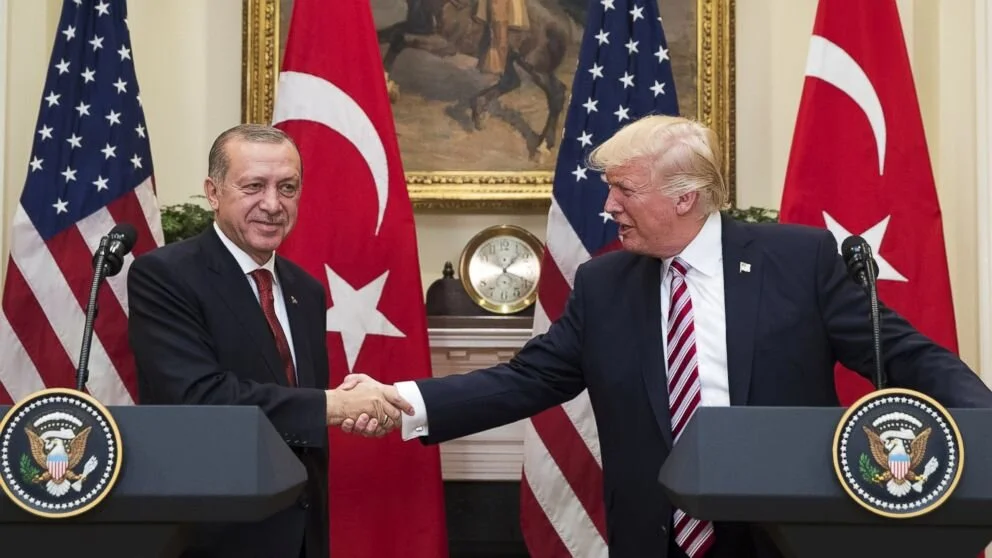What's Going on with Trump and the Kurds?
Turkish President Recep Erdogan (left) and U.S. President Donald Trump (right) met earlier this month to discuss the conflict in Syria (Image)
On Oct. 5, Turkish President Recep Erdogan called U.S. President Donald Trump about his desire to undergo a military operation targeting Kurdish forces in northern Syria. Trump then announced that he would withdraw U.S. troops from the region for their safety.
The Kurdish forces that Turkey targeted have fought alongside the U.S. against the Islamic State in the region, and were detaining around 10,000 ISIS prisoners across northern Syria. Trump and Secretary of State Mike Pompeo pledged their help to the Kurds in 2018. Trump said that the Kurds “died for us and with us. … We don’t forget. I don’t forget.” Pompeo echoed the President, saying that “Syrian Kurds have been great partners. We are now driving to make sure they have a seat at the table.”
But Trump’s strategy of helping the Kurds was far less direct than their help in the fight against ISIS. On October 9, Trump tweeted: “if Turkey does anything that I, in my great and unmatched wisdom, consider to be off limits, I will totally destroy and obliterate the Economy of Turkey”.
Sen. Lindsey Graham (R-SC) led the charge of criticizing the president for the withdrawal, tweeting: "Pray for our Kurdish allies who have been shamelessly abandoned by the Trump Administration. This move ensures the reemergence of ISIS." He quickly co-sponsored a bill to impose sanctions on Turkey with Sen. Chris Van Hollen (D-MD), which was expected to have veto-proof support.
On Oct. 13, Trump tweeted that he was working with Graham and Congressional Democrats to impose sanctions. The following day, Secretary of the Treasury Steve Mnuchin announced the U.S. will progress with sanctions on Turkish officials.
U.S. Special Envoy and Ambassador James Jeffrey testified as a witness for the Senate Foreign Affairs Committee on Oct. 22 explaining some of the results of the withdrawal. According to Jeffrey, there was a war crime committed by Turkish forces, and “dozens” of ISIS members escaped and there was no plan to retrieve them yet.
On Oct. 23, President Trump announced that the sanctions imposed Turkey would be repealed because a permanent ceasefire was negotiated between Turkey, Kurdish forces and Syria. Trump explained “Turkey, Syria, and all forms of the Kurds have been fighting for centuries. We have done them a great service, and we’ve done a great job for all them, and now we’re getting out.”
Although Graham did not have a chance to pass congressional sanctions, and the president’s sanctions only lasted for nine days, the senator praised Trump’s actions, saying he was “increasingly optimistic that we can have some historic solutions in Syria that have eluded us for years if we play our cards right.”
The conflict between the president and Congress grew as convoluted as the situation in Syria. The usual skeptics of the president will continue criticizing him, but Trump can expect his allies, like Graham, to return to defending in the coming battles on Capitol Hill.

